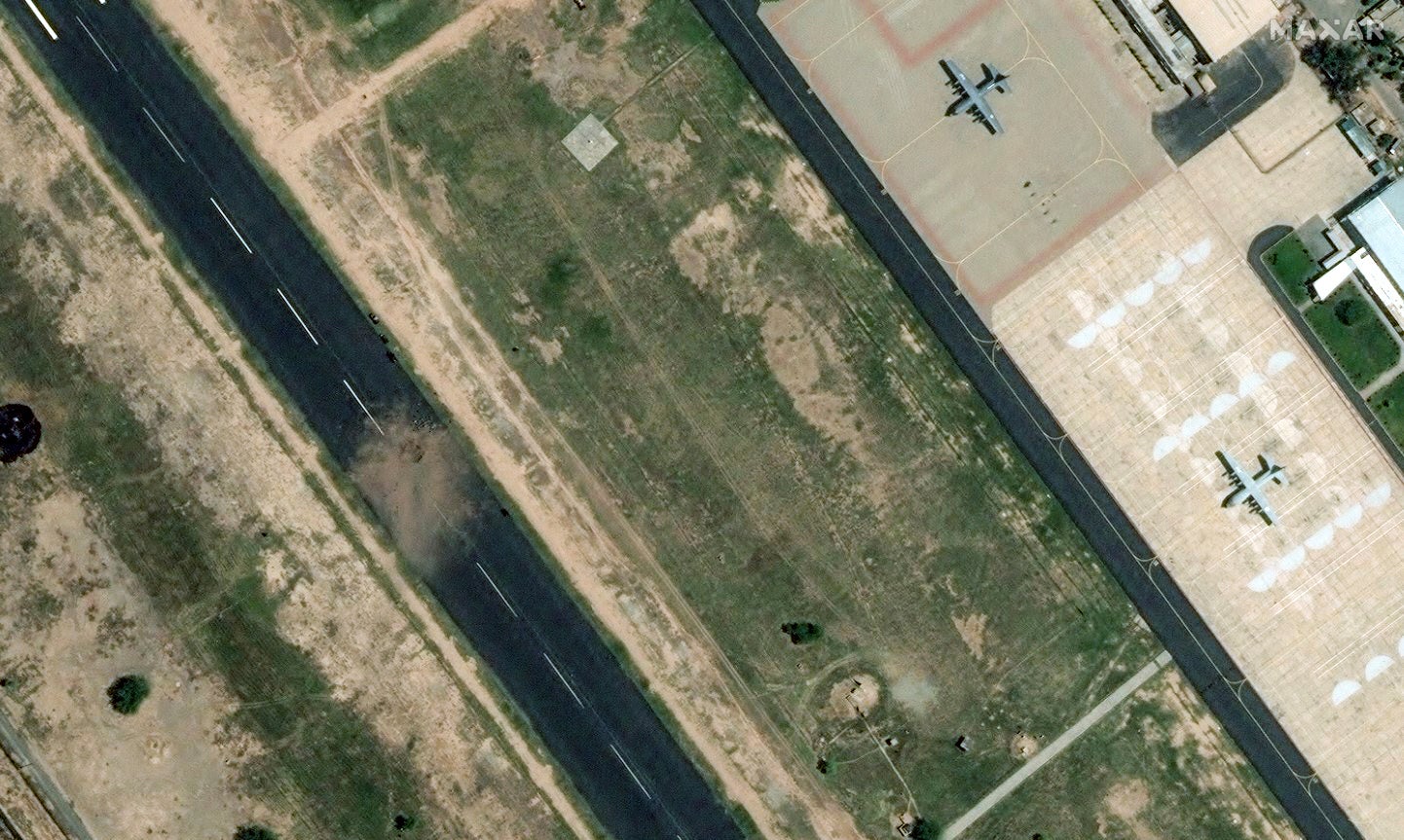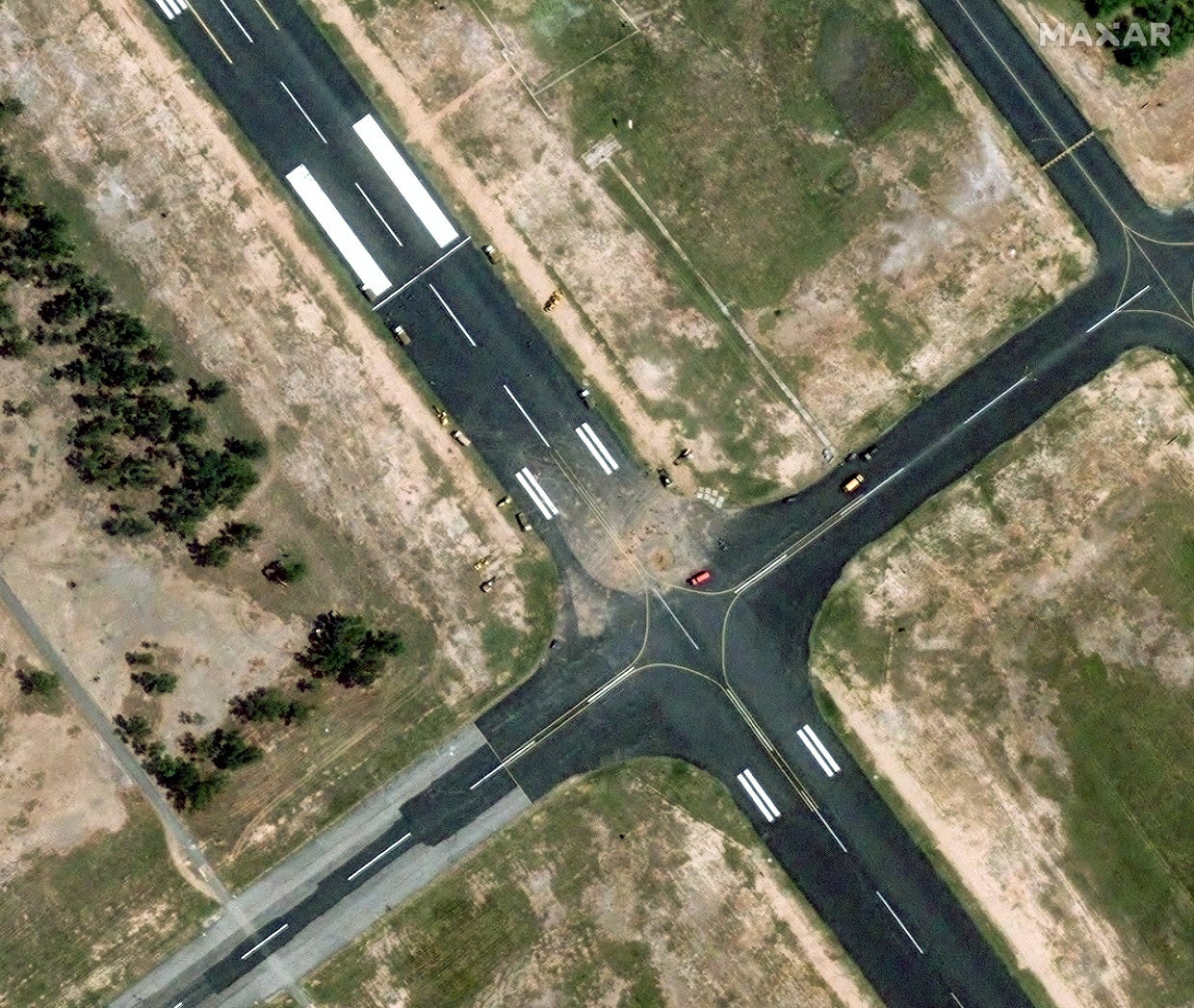ARTICLE AD BOX
The UN nuclear watchdog has confirmed there has been no radiation leak from any nuclear facility in Pakistan following a military standoff with India last week.
India and Pakistan walked back from the brink of war following one of the worst military escalations between the two nuclear-powered neighbours in decades that resulted in the death of more than 70 people.
Following a ceasefire announcement over the weekend, speculations were rife that India had struck near the nuclear facilities of Pakistan – a claim that New Delhi has denied.
The International Atomic Energy Agency (IAEA) told The Indian Express that "based on information available" to the agency, "there has been no radiation leak or release from any nuclear facility in Pakistan".
India on Monday denied targeting Pakistan’s alleged nuclear installations in Kirana Hills of Punjab province. "Thank you for telling us that Kirana Hills houses some nuclear installation – we did not know about it," Air Marshal Awadhesh Kumar Bharti told reporters when asked about New Delhi attacking the region.
"We have not hit Kirana Hills, whatever is there," he added.
Kirana Hills, located near the city of Sargodha, has been reportedly linked to Pakistan's nuclear ambitions since the 1980s when Islamabad conducted a series of subcritical nuclear tests in the region. The "cold tests" were critical for Pakistan to refine its nuclear warhead designs without the need for large underground test sites, according to The Times of India.

New Delhi claimed it struck the Mushaf air base in Sargodha, among other locations in Pakistan, during its "Operation Sindoor" pre-dawn airstrikes on 7 May.
India said the airstrikes targeting alleged militant hideouts in Pakistan and Pakistan-administered Kashmir were conducted to avenge the deaths of 26 people, mostly Hindu tourists, killed in a militant attack in India-administered Kashmir on 22 April.
New Delhi accused Pakistan of backing the gunmen who carried out the massacre. Islamabad denied the charge and sought an independent investigation.

In the wake of the attack, the two countries expelled each other’s diplomats, suspended visas, and closed airspaces and land borders. India also suspended a crucial treaty on river water sharing.
The Indian strikes escalated the tensions into a military conflict as the two sides exchanged heavy fire along their de facto border in the restive Kashmir region as well as missile and drone strikes on military installations.
The Indian military claimed to have killed nearly 100 militants with its overnight strikes and 35-40 personnel of Pakistan’s armed forces in subsequent action along the de facto border.
The Pakistani army said on Tuesday that the clash with India had left 11 soldiers and 40 civilians dead. A Pakistani minister last week claimed their armed forces had killed 40-50 Indian soldiers.
Both India and Pakistan claimed to have downed each other’s fighter jets in a dogfight that reportedly involved over 125 aircraft, making it the largest aerial battle since the Second World War.
Both nations also claimed victory in the overall fighting, which was halted after US president Donald Trump announced a ceasefire on Saturday afternoon.









 English (US) ·
English (US) ·